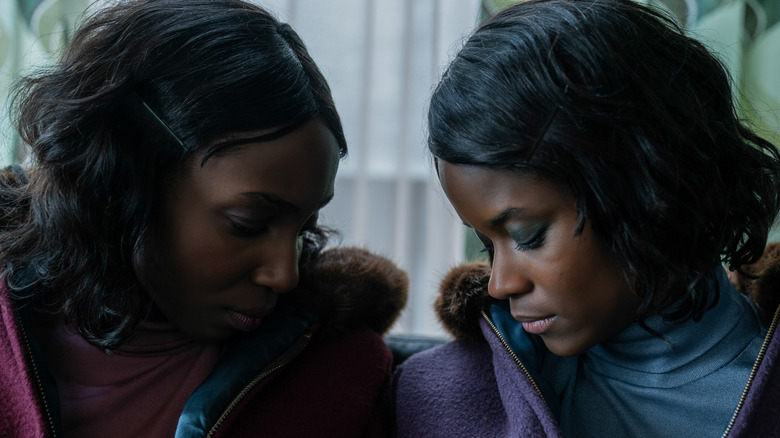Letitia Wright On Telling The Story Of Silenced Black Women In The Silent Twins - Exclusive
In the past 100 years, science and our knowledge of the human body and mind have grown at a rate almost too fast to keep up with. While we openly talk about mental health struggles and learning differences now, there was a time when society preferred to toss away anyone who didn't fit with society's notion of normal. Rather than focusing on genuinely helping these individuals, punishment and removal from the general public were often the first and only steps taken — and plenty of authority figures would then pat themselves on the back for a job well done. Unsurprisingly, marginalized communities got the brunt of misdiagnoses and punishing treatments. That's what happened when June and Jennifer Gibbons were sent to an intense psychiatric hospital for 11 years.
Mental health care facilities are vital, but they're not set up to be helpful to everyone. Doctors need to reevaluate their usefulness for each individual under their care periodically. In the Gibbons twins' case, the stress of the ward likely played a significant role in Jennifer Gibbons' death. All of this could have been avoided if those in charge of deciding their fate had taken the time to truly get to know them and their needs.
During an exclusive interview with The List, Letitia Wright explained the heavy amount of research and prep work that went into telling the Gibbons twins' story in "The Silent Twins." She also noted the importance of giving a voice to these young Black women who were misdiagnosed and essentially shunned from society for decades in a psych ward.
Everyone deserves to tell their story
Given that "The Silent Twins" is based on a true story, Letitia Wright and the rest of the cast and crew did a significant amount of prep work to do the sisters' story justice. "I did a year's worth of extensive research — myself and Tamara [Lawrance]. Zoom sessions, accent sessions, movement choreography, [and] a lot of research [from] our director. Every department had to read the book," she explained. "Everybody was very in tune with research for about a year, and then we made it." With so many people silencing the women's truth when they were alive, it was important for the film to honor their memory with accuracy.
Throughout history, countless people from marginalized communities have had their stories silenced by their oppressors. It's not just a problem in the past — society still has a long way to go. "I connected with the story because it was different [from] other stories [that are] out there," Wright noted. "We are witnessing through this movie the misdiagnosis of two young Black women who did nothing close to heinous crimes but were placed in a psychiatric hospital for 11 years. That's an incredible injustice that was done to them." The film follows the Gibbons twins into the '90s, highlighting the not-so-historic change that we still need to make today.
Mental health care is incredibly important, but it only works when healthcare providers take the necessary time to get to know their patients well enough to diagnose and choose a treatment option that's best suited for the patient. Wright elaborated, "Our film, in particular, looks at the consequences of misdiagnosing someone — the consequences of not taking time to understand an individual and boxing them [in] and putting them away, and then using the things of the misdiagnosis to cure them, but actually, it causes more harm. Our film dives deep into that."
"The Silent Twins" is now playing in theaters.
If you or someone you know needs help with mental health, please contact the Crisis Text Line by texting HOME to 741741, call the National Alliance on Mental Illness helpline at 1-800-950-NAMI (6264), or visit the National Institute of Mental Health website.

